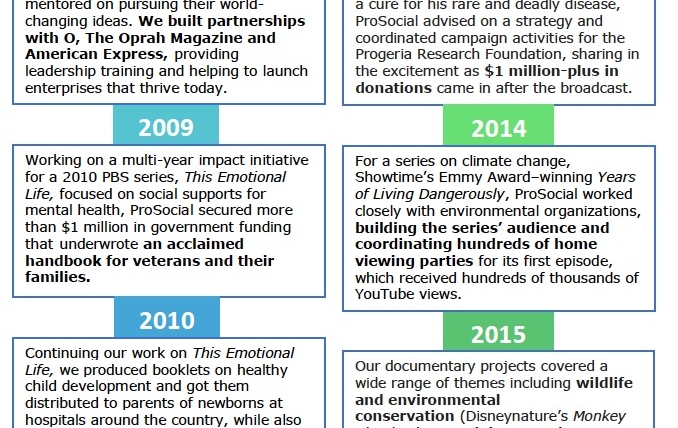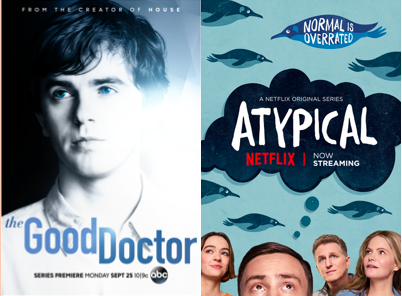We Salute Richard Linklater’s New Movie About Veterans
“Last Flag Flying” isn’t your typical Hollywood military drama. There are no explosions or intense battle scenes. In the classic fashion of director Richard Linklater (“Boyhood,” “Before Sunrise,” “Dazed and Confused”), the action revolves around the main characters’ stories, shared history, and banter with one another.
Three Vietnam veterans, played by Steve Carell, Bryan Cranston, and Laurence Fishburne, reunite after 30 years for a road trip before the burial of one of their sons, a Marine who has died during the Iraq war. The three men’s vastly different personalities, perspectives, and postwar paths illustrate that while veterans face common challenges, each veteran is unique. See the trailer here.
Leading up to the release of “Last Flag Flying” in November, ProSocial is helping the film reach audiences, including many groups around the country with a focus on veterans.
We spoke with David Sutherland, Chairman of the Dixon Center for Military and Veterans Services, to discuss the film with someone who has deep understanding of veterans’ issues. He served in the military for 29 years, including as a Brigade Commander in Iraq, and worked at the Pentagon as a Special Assistant to the Chairman of the Joint Chiefs of Staff, with a focus on warrior and family support. We first connected with him during our campaign for the 2010 PBS series “This Emotional Life,” which involved the distribution of more than 700,000 handbooks for family and friends of deployed service members.
The Dixon Center for Military and Veterans Services Tweeted: “We previewed #LastFlagFlying – thought-provoking, drives new conversations, recognizes each veteran is unique and that bonds don’t break.” What kinds of new conversations do you think the film can help drive?
First off, the tails on the Vietnam War are long and still exist. The three Vietnam veterans in the film capture that very, very well. The tails on the Iraq and Afghanistan Wars are going to be just as long. But a difference is that during Vietnam, 14 percent of those that served were married, and now 50 percent of our service members are married. Our caregivers are going to be caregivers for very, very long, because so many of our service members from Iraq and Afghanistan are surviving. I think part of what you’re going to see from this movie is that conversation.
The other conversation that it can drive is about listening—removing pathology, removing diagnosis, and why don’t we listen to the veterans and their families?
Another conversation that I think can take place is about the uniqueness of each veteran’s experience in the transition to civilian life. When we each have our own goals and are impacted by the vileness of war differently, we have to have the conversation that cookie-cutter solutions are not the answer.
What do you see as the top veterans’ issues that the country should be paying attention to and the resources that veterans need?
Because of the disconnect between the military and civil society, with so few having served in the past, we need to realize that our veterans and military families are not victims; they’re veterans. Our veterans will be contributing members to their community for years to come. But they need a hand up in some cases.
We need to continue to look at education for veterans and their families, meaningful employment, wellness, and we need to remove barriers to those because they don’t have a social network.
Let’s harness what already exists—not create new programs, but include veterans and their families into existing community-based programs: nonprofits, faith-based organizations, educators, healthcare providers, employers, commercial driver’s license training programs, apprenticeships. At Dixon Center, we believe our veterans and military families can succeed where they live. Our mission is to ensure that’s possible in every community.
Together we can declare we will not tolerate another generation of homeless veterans.
At ProSocial, we recognize the value of character-driven storytelling in inspiring engagement on social issues. For audiences who have not seen “Last Flag Flying,” how would you describe the film and what you found compelling about the story?
What I found compelling was the fact that the message was right. It was honest. There was no desire to create victims or pity. It showed that the bonds from the battlefield are unlike any bonds you can imagine, and they never end.
Another piece is that it’s not focused on one generation—it’s focused on all generations of veterans, and that we can learn from each other. We’re successful when we come home because we’ve learned from the Vietnam veterans that we can talk about our challenges, in spite of the fact that they couldn’t.
This movie also recognizes the families of the fallen, who we can never forget. What you see in the film is eerily similar to some of the challenges our service members experience. But at the end of the day, just as the three characters display in the end, our veterans are extremely proud of their service, their flag, and their country.
“Last Flag Flying” releases in New York and Los Angeles on November 3 and opens nationwide on November 17.




